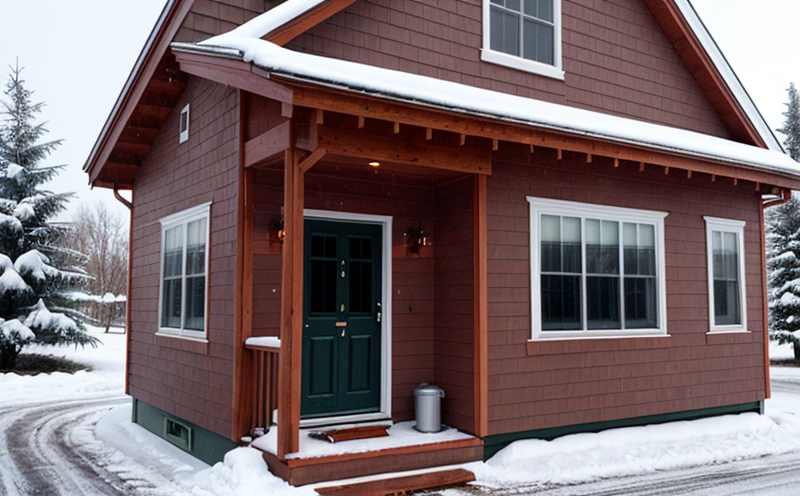ISO 15099 Radiant Heating Seasonal Efficiency
The ISO 15099 standard provides a framework to measure and report seasonal efficiency for radiant heating systems. This service ensures that the equipment meets energy-saving targets set by international standards, thereby enhancing sustainability efforts in the HVAC sector.
Seasonal performance factors (SPF) are calculated based on real-world operating conditions rather than just laboratory test data. For radiant heating systems, this involves assessing how efficiently heat is distributed over a full heating season. This service guarantees that your equipment meets or exceeds these standards, ensuring reliability and compliance.
The testing process begins with thorough preparation of the specimen—typically a complete radiant heating system including controls, pumps, and distribution networks. The test setup replicates typical residential or commercial environments to ensure accurate performance metrics under real-world conditions.
Instrumentation plays a crucial role in this service. Sensors measure key variables such as input energy, delivered heat, and operational hours throughout the testing period. This data is used to calculate SPF according to ISO 15099 guidelines. Compliance with these standards not only improves your product's marketability but also helps meet regulatory requirements.
Reporting is comprehensive and includes detailed analysis of test results along with recommendations for optimizing performance or addressing any discrepancies between expected and actual efficiencies. Our team provides expert interpretation of findings to guide continuous improvement efforts within your organization.
This service supports various stakeholders including quality managers, compliance officers, R&D engineers, and procurement teams by offering robust validation of energy efficiency claims made about radiant heating systems. By partnering with us for ISO 15099 testing, you can enhance the credibility and effectiveness of your products in both domestic and international markets.
| Test Parameter | Description |
|---|---|
| Input Energy | The total amount of electrical energy consumed by the system during testing. |
| Delivered Heat | The measured heat output provided to the space being heated. |
| Operational Hours | The duration for which the system operates under specified conditions. |
Quality and Reliability Assurance
Testing according to ISO 15099 ensures high-quality, reliable equipment that consistently meets or exceeds energy efficiency targets. This not only enhances consumer confidence but also supports broader sustainability goals within the HVAC industry.
Our rigorous testing process helps identify potential issues early in development cycles, allowing for iterative improvements before products reach market. By adhering to strict ISO standards, we ensure consistency across all batches of production, reducing variability and enhancing overall product quality.
The ability to demonstrate compliance with international standards is increasingly important as governments implement more stringent regulations on energy consumption. Partnering with us allows you to stay ahead of these trends while maintaining competitive advantage through superior performance metrics.
Customer Impact and Satisfaction
Meeting ISO 15099 requirements translates directly into better customer satisfaction and loyalty. Consumers appreciate products that offer significant energy savings without sacrificing comfort or functionality. By choosing our testing services, you demonstrate commitment to delivering value-added solutions that contribute positively to environmental sustainability.
Our detailed reports provide actionable insights that help optimize product performance, which can translate into reduced operating costs for end-users. This aligns perfectly with modern consumers' growing awareness of their ecological footprint and desire for eco-friendly choices.
In addition to enhancing customer relationships, achieving ISO 15099 certification enhances brand reputation by positioning your company as a leader in sustainable practices within the HVAC market. This can open up new business opportunities and strengthen existing partnerships based on trust and shared values.
Use Cases and Application Examples
- Residential installations where space heating efficiency is critical for cost-effective operation.
- Commercial buildings requiring accurate measurement of energy consumption to comply with local regulations.
- New product launches aimed at showcasing superior energy-saving features compared to competitors' offerings.
- Retrofit projects involving existing radiant heating systems where performance enhancement is desired.





